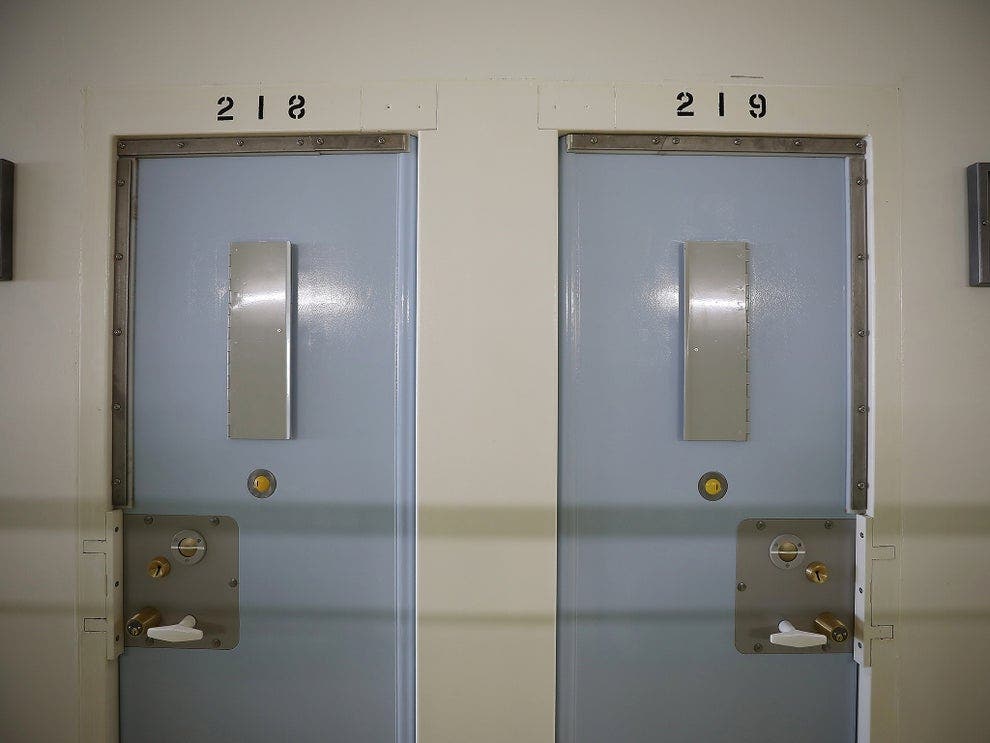Severe Covid restrictions in jails causing ‘disturbing’ decline in prisoners’ health, watchdog warns
'Prolonged and severe' limitations placed on inmates since March hampering effective rehabilitation and having 'profound' effect on wellbeing, finds Prison Inspectorate

Severe coronavirus restrictions in jails have led to a “disturbing” decline in the emotional and physical wellbeing of inmates and could hamper the chances of effective rehabilitation, the prisons watchdog has warned.
Since the pandemic hit the UK in March, most adult prisoners have been locked in their cells for an average of 22.5 hours a day, with the vast majority prevented from leaving their wings to go to work, education or other activities.
A report by the Prison Inspectorate finds that while the restrictions have successfully limited the spread of Covid-19 in jails, the decline in prisoners’ emotional, psychological and physical wellbeing as a result of “such prolonged and severe” limitations has been "profound”.
Chief inspector Charlie Taylor warned that the lack of support and activities taking place to address inmates’ offending behaviour meant many would struggle to cope on release, potentially leading to further offending and greater strain on public services.
“The lack of support to reduce reoffending and help prisoners address their risk of serious harm to the public does not fill me with hope for the longer term,” he said.
The report notes that since March last year, most prisoners have spent over 90 per cent of their days in cramped cells, which are often shared by two people, sometimes with an unscreened toilet and poor ventilation.
They were “chronically bored and exhausted” by spending hours locked in their cells and described being drained and lacking in purpose, with some saying they were using unhealthy coping strategies, including self-harm and drugs.
Inspectors found that although the introduction of free video calling was valued by inmates, they lacked sufficient day-to-day interaction and support from other prisoners, staff and family and friends.
One prisoner told inspectors: “It was hard… you’re in a box aren’t you. It’s like why don’t I sit over there today, alright I’m going to sit on that side of the bed… no I’m going to sit on that side of the bed for a change, you rearrange how your bed linen is… It’s just weird and difficult.”
Another said of the lack of support and interaction with others: “Basically from day to day, as soon as you wake up in the morning your anxiety is through the roof because you’ve got no support, you’re banged up like 23 hours a day.”
A third inmate said: “I see spice [psychoactive substances] on the wing every day, they’re putting themselves to sleep so they can sleep their sentence away.”
Inspectors said the negative impacts of severe restrictions on daily life raised the question of whether the prison service had got the balance right between managing the Covid-19 risk and providing enough meaningful activity, engagement and time out of cells.
Mr Taylor said: “In our fieldwork we saw a sense of hopelessness and helplessness becoming ingrained. Opportunities for this work had dramatically reduced due to the restrictions and prisoners we spoke to said they would be released without having had help to change their attitudes, thinking and behaviour.”
The chief inspector called for action to maintain the “few positives” derived from the pandemic, such as video calling, and to make sure that prisons were prepared to restore activity as soon as it was safe, adding: "Locking prisoners up in prolonged isolation has never been a feature of a healthy prison.”
In light of the report, Peter Dawson, director of the Prison Reform Trust, said saving lives in the prison estate had come at a “huge price” for inmates and their families, and said this had been exacerbated by the “overcrowded and dilapidated” conditions in prisons before the pandemic began.
He added: “It is inexplicable that ministers will shortly introduce legislation that will inflate our prison population still further, knowing what the people who live and work in prisons have had to endure over the last year.”
Prisons and probation minister Lucy Frazer QC said she would "consider the report’s findings carefully".
She added: “The action we've taken and the hard work and dedication of frontline staff has significantly limited the spread of the virus, saved lives and protected the NHS.
“We know these necessary measures have come at a cost, so we continue to support prisoners with their wellbeing and rehabilitation through vital family contact, education, work and exercise."
Join our commenting forum
Join thought-provoking conversations, follow other Independent readers and see their replies
Comments



Bookmark popover
Removed from bookmarks